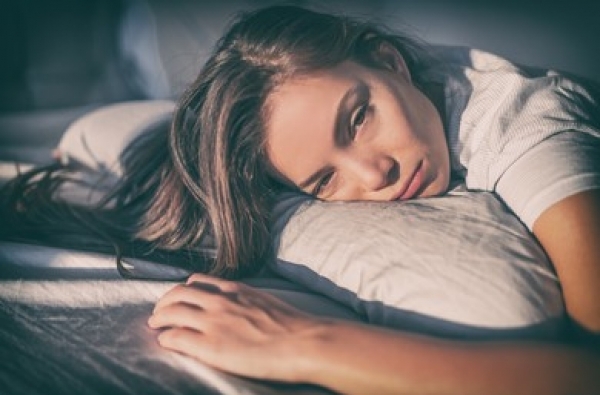
Insomnia is a common sleep disorder that can have a significant impact on an individual’s quality of life. It is characterized by difficulty falling asleep, staying asleep, or waking up too early, and it can lead to a number of problems, including fatigue, difficulty concentrating, and irritability. Insomnia can also have negative effects on physical health, as a lack of sleep has been linked to a number of health problems, including obesity, diabetes, and heart disease.
There are several different types of insomnia, including acute insomnia, which is short-term and typically lasts for a few days or weeks, and chronic insomnia, which is ongoing and can last for months or even years. Acute insomnia is often triggered by a specific event, such as stress, illness, or a change in environment, while chronic insomnia may be caused by underlying medical or psychological conditions.
There are several potential causes of insomnia, including medical conditions, such as sleep apnea and restless leg syndrome, medications, such as stimulants and certain antidepressants, lifestyle factors, such as poor sleep hygiene and an irregular sleep schedule, and psychological conditions, such as anxiety and depression.

There are a number of treatment options for insomnia, including lifestyle changes, such as improving sleep hygiene and establishing a regular sleep schedule, and behavioral therapies, such as relaxation techniques and cognitive behavioral therapy. In some cases, medication may also be used to help individuals with insomnia fall asleep and stay asleep.
Improving sleep hygiene is an important aspect of treating insomnia. Sleep hygiene refers to the habits and practices that can promote healthy sleep. Here are some tips for improving sleep hygiene:
- Stick to a consistent sleep schedule: Going to bed and waking up at the same time every day can help regulate your body’s sleep-wake cycle and make it easier to fall asleep at night.
- Create a relaxing bedtime routine: Engaging in activities that help you relax before bed, such as reading a book or taking a warm bath, can help you wind down and prepare for sleep.
- Avoid screens before bed: The blue light emitted by screens can interfere with your body’s production of the sleep hormone melatonin, making it harder to fall asleep. Avoid screens for at least an hour before bedtime.
- Make your sleep environment comfortable: A comfortable and conducive sleep environment is essential for getting a good night’s sleep. Keep your bedroom dark, cool, and quiet, and invest in a comfortable mattress and pillows.
- Avoid caffeine and alcohol before bed: Both caffeine and alcohol can disrupt your sleep cycle and make it harder to fall asleep. Try to avoid these substances in the hours leading up to bedtime.
- Exercise regularly: Regular exercise can help improve sleep quality, but be sure to avoid vigorous exercise close to bedtime as it may interfere with sleep.
- Consider relaxation techniques: Techniques such as meditation, deep breathing, and progressive muscle relaxation can help relax the body and mind, making it easier to fall asleep.
- Avoid napping during the day: While napping can be a good way to catch up on missed sleep, it can also disrupt your sleep cycle and make it harder to fall asleep at night.
- Consider using a white noise machine: White noise can help mask external sounds and create a calming and consistent sound environment, which can help you fall asleep.

Getting a good night’s sleep is essential for physical and mental well-being. However, many people struggle with sleep issues such as insomnia, which is characterized by difficulty falling asleep, staying asleep, or waking up too early. Insomnia can lead to a number of problems, including fatigue, difficulty concentrating, and irritability, and it has been linked to a number of health problems, including obesity, diabetes, and heart disease.
Fortunately, there are several methods that can help individuals get a better night’s sleep and improve their insomnia. Here are some tips for achieving perfect sleep:
- Stick to a consistent sleep schedule: Going to bed and waking up at the same time every day can help regulate your body’s sleep-wake cycle and make it easier to fall asleep at night.
- Create a relaxing bedtime routine: Engaging in activities that help you relax before bed, such as reading a book or taking a warm bath, can help you wind down and prepare for sleep.
- Avoid screens before bed: The blue light emitted by screens can interfere with your body’s production of the sleep hormone melatonin, making it harder to fall asleep. Avoid screens for at least an hour before bedtime.
- Make your sleep environment comfortable: A comfortable and conducive sleep environment is essential for getting a good night’s sleep. Keep your bedroom dark, cool, and quiet, and invest in a comfortable mattress and pillows.
- Avoid caffeine and alcohol before bed: Both caffeine and alcohol can disrupt your sleep cycle and make it harder to fall asleep. Try to avoid these substances in the hours leading up to bedtime.
- Exercise regularly: Regular exercise can help improve sleep quality, but be sure to avoid vigorous exercise close to bedtime as it may interfere with sleep.
- Consider relaxation techniques: Techniques such as meditation, deep breathing, and progressive muscle relaxation can help relax the body and mind, making it easier to fall asleep.
- Avoid napping during the day: While napping can be a good way to catch up on missed sleep, it can also disrupt your sleep cycle and make it harder to fall asleep at night.
- Consider using a white noise machine: White noise can help mask external sounds and create a calming and consistent sound environment, which can help you fall asleep.
- Talk to your doctor: If you have tried these techniques and are still struggling with insomnia, it may be helpful to talk to your doctor. They can help identify any underlying causes of your insomnia and recommend treatment options, such as medication or therapy.

In summary, getting a good night’s sleep is essential for physical and mental well-being. Insomnia is a common sleep disorder that can negatively impact an individual’s quality of life, but there are several methods that can help improve sleep quality and alleviate insomnia. These include sticking to a consistent sleep schedule, creating a relaxing bedtime routine, avoiding screens before bed, making the sleep environment comfortable, avoiding caffeine and alcohol before bed, exercising regularly, practicing relaxation techniques, avoiding napping during the day, using a white noise machine, and seeking help from a medical professional if necessary. By implementing these strategies, you can improve your sleep quality and wake up feeling refreshed and ready to tackle the day.